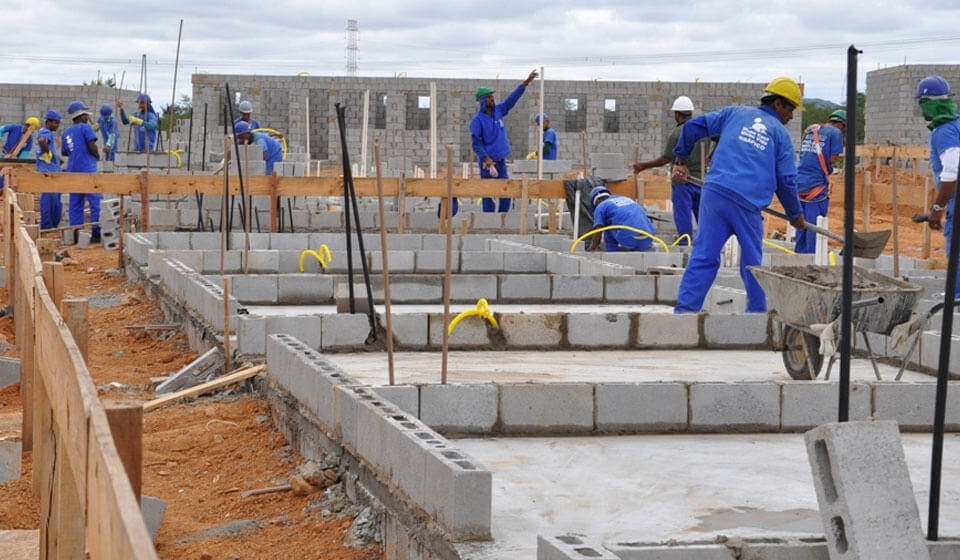RIO DE JANEIRO, BRAZIL – One sector that is heated is the civil construction sector, which has reemployed those who were stuck in the pandemic, but the problem now is high inflation.
The horizon in construction is a legacy of the times when interest rates were on the floor. These projects were launched, sold, and now need to be built. There is no lack of work. Construction site foreman Douglas Mendes returned to the construction business after facing unemployment at the height of the pandemic.

“I always tried to get back into the area when I was out of the market, always the area I worked in and enjoyed. Now, to take advantage that the demand is high again, for those who like and need to work in this area, this is the time,” he says.
“The demand is very high. There is even a very high demand for professionals in the production line, such as carpenters, plasterers, assemblers, and these well-qualified professionals are very sought after by construction companies,” explains Milton Bigucci Junior, technical director of the construction company.
This demand has a price. It is expensive to build, and it is not new today, but after two years of pandemic pushing up material costs, the value of labor is now inflating the sector. It is that the dispute for workers makes the price of the service increase, and salaries go up.
The INCC – National Index of Civil Construction – which measures how much it costs to build in Brazil, rose from 0.87% in April to 1.49% in May. Over the last 12 months, the increase has already reached 11.20%.
The cost of labor alone – which represents half of the index – tripled, reaching an increase of 1.43%, especially since May was the month of the wage agreement. And the readjustments averaged 12.5%.
The person responsible for disclosing the index explains that the room for reforms in the family budget has decreased.
“Price increases, very high inflation leading to the family budget being more crowded with other demands. And the very opening of activities, leading to other expenses. All this caused the family’s expenses with materials to decrease. But on the other hand, we had the cycle, due to the demand from companies, evolving more strongly,” points out Ana Maria Castelo, coordinator of FGV IBRE construction projects.
The rising INCC also has another side effect. Coriolano Lacerda, a real estate market specialist and DataZAP+ intelligence manager, recalls that the index is used to readjust the installments of real estate bought in the plant because it corrects the difference between what was budgeted at the beginning of the work and what it is actually costing.
“Now we are at that moment when the price needs to start being corrected. So, we have room for price growth, given the demand that exists in the market. The big challenge is to balance this, to balance how we make this price pass-through, if, on the other hand, we also have the high Selic rate taking away the purchasing power of families,” he points out.
Even with the challenges, opening more vacancies in one of the sectors that employ the most led Eraldo Carlos Santos Bonfim not to think twice. As soon as the job news arrived in Bahia, the construction worker took the road to São Paulo.
“It is worth it because, at that moment, I was unemployed, and now, thank God, I am employed. It is worth it,” he says.
With information from Jornal Nacional

